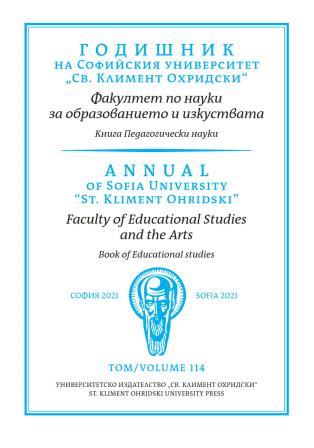Factors Contributing to the “Joy to Learn” in Japanese Elementary Schools: a Comprehensive Study Using Quantitative and Qualitative Analysis
Factors Contributing to the “Joy to Learn” in Japanese Elementary Schools: a Comprehensive Study Using Quantitative and Qualitative Analysis
Author(s): Kumiko Yoshitake, Rio Yoshitake, Maori UrakawaSubject(s): Social Sciences, Education, School education
Published by: Софийски университет »Св. Климент Охридски«
Keywords: Joy of learning; subjective academic ability; objective academic achievement; motivation; cooperative learning; grade level; meta-cognition; elementary school students and peer teaching
Summary/Abstract: Positive psychology has come to point out the effectiveness of positive emotions. The joy of learning is an important positive emotion that encourages children to continue learning. Therefore, in the first study, we investigated the joy of learning from the child’s perspective and examined the factors that influenced it through quantitative analysis. In the early grades, classroom atmosphere and approval and subjective academic ability, had facilitating effects on the joy of learning. In the upper grades, in addition to the factors mentioned above, social skills and motivation had facilitating effects. Furthermore, it was found out that the joy of learning decreases as the grade steps up. Therefore, in the second study, we extracted the responses of the sixth graders, who still find joy in learning and did a qualitative analysis. The result showed that they found fun in cooperative learning in Maths. It was discussed from the viewpoints of meta-cognitive development, classroom atmosphere, cooperative learning in various subjects, and the experiences from the intergroup competition.
- Issue Year: 114/2021
- Issue No: 1
- Page Range: 30-53
- Page Count: 24
- Language: English

